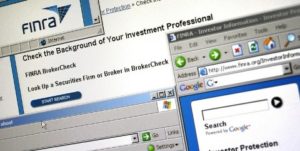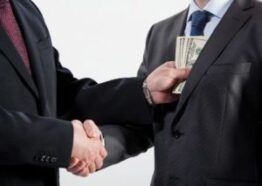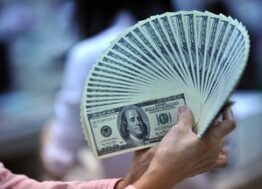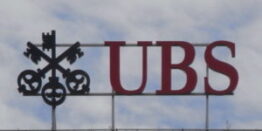
UBS Financial Services Inc. of Puerto Rico and two of its executives have agreed to settle charges of fraudulent conduct related to mutual funds by paying $26.6 million, to be placed into an account for harmed investors.
The fraud consisted of misleading statements made to investors, concealment of a liquidity crisis, and the obscuring of UBS Puerto Rico’s control of the secondary market for 23 of its non-exchange-traded, closed-end mutual funds (CEFs). The Securities and Exchange Commission (SEC) brought the charges through an order instituting administrative cease and desist proceedings on May 1.
USB Offer of Settlement
The firm made an offer of settlement the same day. Without admitting or denying the findings, UBS Puerto Rico consented to entry of the order, which stated that its conduct willfully violated Section 17(a) of the Securities Act that prohibits fraudulent conduct in the offer and sale of securities, as well as Sections 10(b) and 15(c) of the Exchange Act and Exchange Act Rule 10b-5, which prohibit the same.
The SEC Order
Per the order, UBS Puerto Rico is to pay $11.5 million in disgorgement, $1.1 million in prejudgment interest, and a penalty of $14 million.
The order also censured UBS Puerto Rico and ordered it to retain an independent consultant at its own expense to review the adequacy of the firm’s CEF disclosures and trading and pricing policies and procedures, among other things. The firm agreed to implement all the recommendations of the consultant.
According to the order, the firm knew about the supply and demand imbalance and had discussed the weak secondary market internally.
According to the SEC
As a means to prop up prices, increase liquidity, and create the appearance of a stable market, UBS Puerto Rico bought up shares in firm — affiliated CEFs, according to a press release issues by the SEC. Later, at the direction of its parent company, the firm withdrew its price and liquidity support and sold 75 percent of its CEF inventory to unsuspecting investors.
This fraudulent activity occurred during 2008 and 2009, the SEC’s order said, when UBS Puerto Rico, Miguel A. Ferrer, its former CEO, and Carlos J. Ortiz, its head of Capital Markets, made misrepresentations and omissions of material facts to retail customers regarding the CEFs.
Specifically, the misrepresentations and omissions concerned the liquidity of the secondary market for these funds and their pricing, the order said.
For example, UBS Puerto Rico claimed that the CEF prices were based on market forces such as supply and demand, and did not disclose that the CEF prices were set by the firm’s own trading desk.
Nor did UBS Puerto Rico adequately disclose that it controlled the secondary market as the dominant CEF broker-dealer, among other things, the order said. Despite certain disclosures on the firm’s website and in prospectuses, investors were not adequately informed that their secondary market sales depended mostly on UBS Puerto Rico’s ability to solicit more customers or purchase shares into its inventory.
As Ferrer, Ortiz and the rest of the firm promoted CEF sales throughout 2008, they knew demand was steeply declining, the order said. For much of that year, UBS Puerto Rico spent millions of dollars to purchase CEF shares into its own inventory.
While it was buying up the shares, the firm claimed in its promotional materials that there was a liquid market for the shares with stable prices, the order said. They never disclosed that the firm’s own actions were propping up prices and liquidity.
In early 2009, UBS Puerto Rico’s parent company — UBS Financial Services Inc. — determined that its subsidiary’s growing CEF inventory was a financial risk. The parent directed UBS Puerto Rico to reduce its inventory of CEF shares, the order said.
To that end, Ortiz and the firm devised a plan they called, “Objective: Soft Landing.” Through this plan the firm offered and sold its CEF shares at prices that regularly undercut pending customer sell orders.
At the same time, many customers of UBS Puerto Rico were also attempting to sell their shares. They were prevented from doing so by the firm’s actions, the order said. UBS Puerto Rico sold 75 percent of its inventory to investors between March and September of 2009. The shares were worth about $35 million in total.
During this time, UBS Puerto Rico also stepped up its efforts to sell the CEFs, and continued to misrepresent the liquidity of the market and the way the firm itself was setting the secondary market prices. The firm solicited thousands of retail investors by promoting the CEFs market performance as the result of supply and demand in a competitive and liquid secondary market. The firm also promoted a premium-to-net-asset value of up to 45 percent and never disclosed its withdrawal of market support, the order said.
By September 2009, when the firm had finished dumping its inventory of CEF shares, the market price of certain funds had declined by 10 percent to 15 percent, the order said.
“UBS Puerto Rico denied its closed-end fund customers what they were entitled to under the law — accurate price and liquidity information, and a trading desk that did not advantage UBS’s trades over those of its customers,” said a statement issued by Robert Khuzami, director of the SEC’s Division of Enforcement.
As noted, the SEC also instituted administrative proceedings against Ferrer, the former CEO of UBS Puerto Rico, and Ortiz, its head of Capital Markets.
Order Against Ferrer & Ortiz
According to the order against the two, Ferrer misrepresented and failed to disclose numerous material facts about the CEFs. For example, while he was aware of the supply/demand imbalance, and was in talks concerning his firm’s burgeoning inventory of CEF shares and its support of the market, Ferrer nonetheless caused UBS Puerto Rico to make new primary CEF offerings. He directed his financial advisors to tell customers that the market was stable and that the CEFs were providing superior returns, the order said.
Ferrer also made numerous misleading statements about CEF market prices and peddled the high premiums to net asset value, even while the firm was dumping its inventory and causing huge investor losses, the order said.
Ortiz claimed that that the CEF shares were priced based on supply and demand while he concealed the firm’s CEF purchases that propped up the prices, the order said. This allowed UBS Puerto Rico to maintain the facade of a liquid, stable market.
Moreover, as UBS Puerto Rico reduced its inventory in 2009, Ortiz was talking up CEF secondary market liquidity and pricing to investors at a UBS investor conference, the order said, even as he was executing the firm’s inventory reduction scheme. The plan involved dumping UBS Puerto Rico’s inventory first, at the expense of customer sell orders, putting the firm’s interests ahead of its customers.
Guiliano Law Group
If you have been the victim of securities fraud you should consult with an attorney. The practice of Nicholas J. Guiliano, Esq., and The Guiliano Law Group, P.C., is limited to the representation of investors in claims for fraud in connection with the sale of securities, the sale or recommendation of excessively risky or unsuitable securities, breach of fiduciary duty, and the failure to supervise. We accept representation on a contingent fee basis, meaning there is no cost unless we make a recovery for you, and there is never any charge for a consultation or an evaluation of your claim. For more information contact us at (877) SEC-ATTY.







